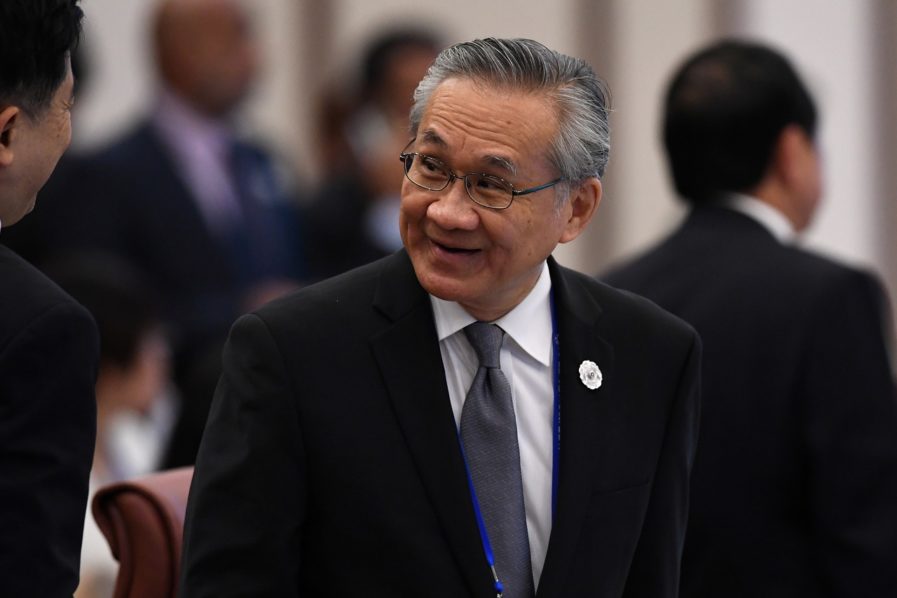
File photo of Don Pramudwinai
Bangkok (People’s Daily) – The Regional Comprehensive Economic Partnership (RCEP) involving the 10 ASEAN nations, China, Japan, South Korea, Australia and New Zealand was signed in November 2020.
Don Pramudwinai, deputy prime minister and foreign minister of Thailand, emphasized the importance of RCEP and said that China’s Belt and Road Initiative.(BRI) can reinforce with RCEP, in a written interview with the People’s Daily.
“This agreement will not only reinforce ASEAN centrality, building on the existing ASEAN plus one free trade agreements, but also further deepen and broaden economic integration in our region and beyond,” Don wrote, adding that the signing of RCEP is crucial as “we are seeking to redouble efforts to reinvigorate our economies from the impact of COVID-19.”
Don believed that RCEP will generate an integrated regional market with lowered tariffs, reduce trade barriers, and improve market access for goods and services. This includes, among other things, tariff elimination for at least 92 per cent of all goods.
“It will also promote fair competition and standardized rules and regulations, such as intellectual property, e-commerce, government procurement and dispute settlement. Such an environment is conducive to increased trade and investment,” Don added.
It is estimated that RCEP will generate an additional 4 percent for Thailand’s GDP. Don has full of confidence that RCEP will bring abundant opportunities to both Thai and foreign businesses, particularly in export and manufacturing sectors, such as auto parts and food processing.
“In the long run, I believe that Thailand’s economy will continue to grow alongside the expansion of the RCEP bloc. More business opportunities will be created as more countries join RCEP in the future,” Don said.
All the 10 ASEAN countries are important partners of China in the BRI. Don said that the BRI plays a pivotal role in advancing physical infrastructure development in the region, and RCEP enhances “software connectivity” by harmonizing rules and regulations for cross-border trade and investment.
“RCEP and BRI can reinforce each other as they share the same end goal — that is, to promote cooperation and enhance connectivity and the supply chain in the Asia-Pacific region and beyond.”
In Don’s view, China's dual circulation paradigm can work hand-in-hand with RCEP to promote regional economic growth. “The ‘dual circulation’ model works to strengthen the domestic Chinese market, so will it also help increase international flows of trade and investment with China, and subsequently enhance the regional supply chain. Trade and investment opportunities for exporters and investors will also be expanded within the RCEP region, as market access to China is enhanced.” Don said.
China and Thailand are one family. As for Thai-Chinese relations, Don said, “RCEP will, without a doubt, further cement our already close and cordial ties, not only in terms of trade and investment, but also people-to-people links.”
“At international forums, Thailand and China should continue to work closely together, along with other RCEP participating countries, to uphold multilateralism and ensure an open, transparent, equitable and predictable environment for growth and prosperity in the region,” Don added.


